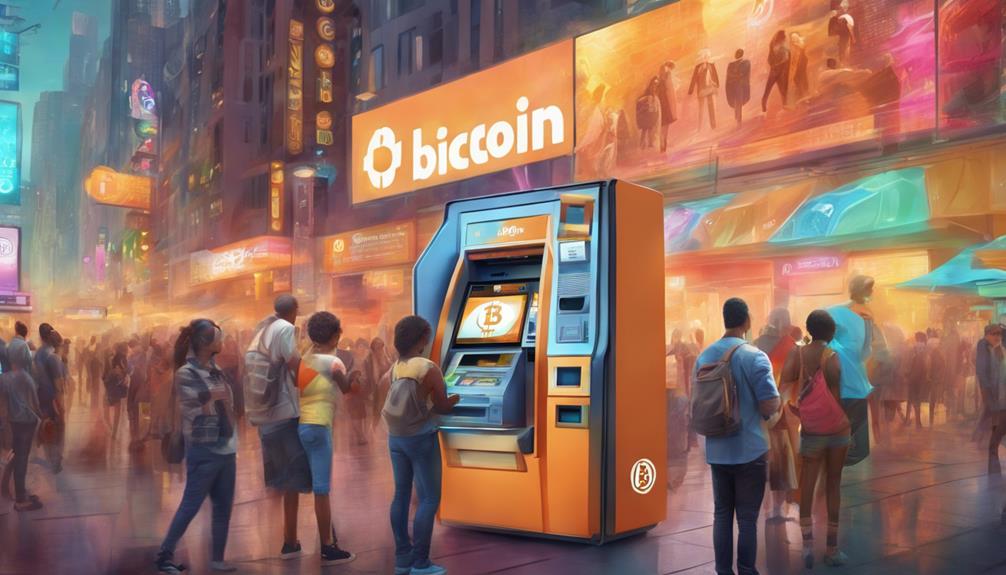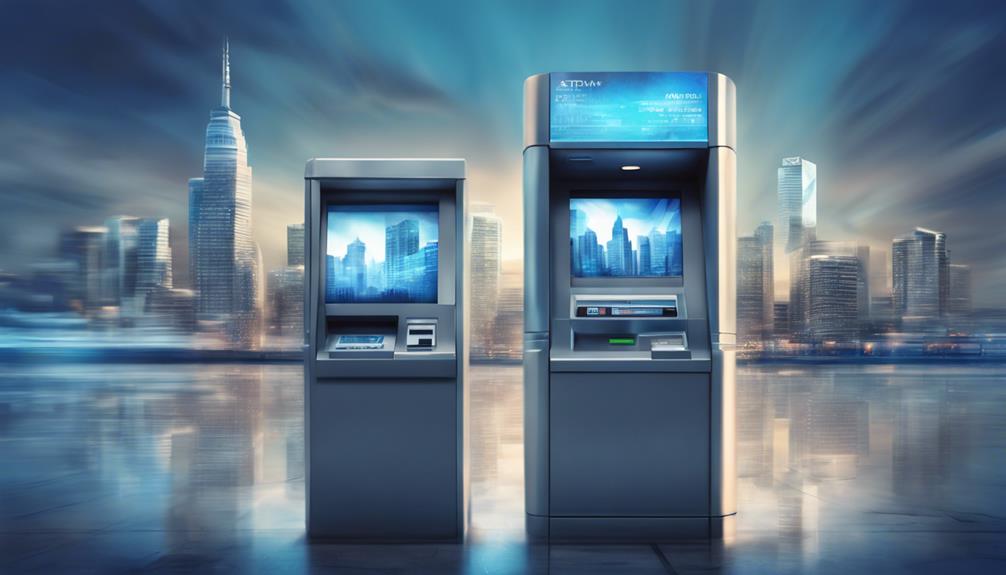10 Tips for Secure Bitcoin Trading Platforms
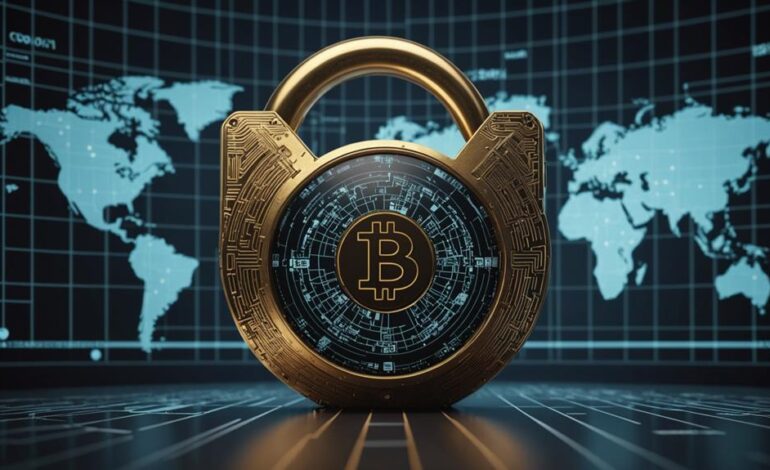
In the rapidly evolving world of cryptocurrency, ensuring the security of your Bitcoin transactions must be your top priority. You've likely heard horror stories about compromised security and massive financial losses. To protect yourself, you need to know the essential security features a trading platform should offer. From the necessity of robust encryption and cold storage options to the importance of two-factor authentication, each element plays a crucial role in safeguarding your assets. But how can you be sure you're checking all the right boxes? Let's explore what makes a platform truly secure, and why overlooking even one aspect could put your investments at risk.
Choose Platforms With Strong Encryption
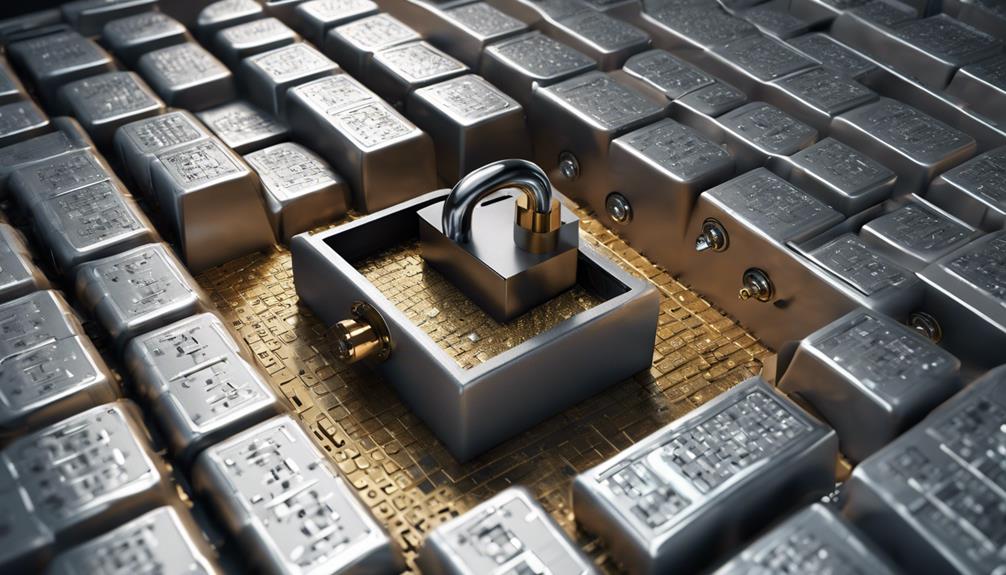
When selecting a Bitcoin trading platform, it's crucial to opt for one with strong encryption. Your financial security depends heavily on how well the platform can protect your data. Encryption is your first line of defense against potential cyber threats.
As you're evaluating your options, look for platforms that use advanced encryption standards, typically AES 256-bit. It's the same level of security used by banks and the military, ensuring that your sensitive information is shielded from hackers.
Don't just stop at the encryption type; consider how the platform encrypts your data. It should secure both your stored data and data in transit. This means that every bit of information moving between you and the servers, as well as what's stored on their servers, is encrypted.
Verify if the platform regularly updates its security protocols. Outdated security can leave you vulnerable to new threats.
You'll also want to check the platform's security track record. Look for any past incidents of data breaches and how they were handled. A platform that's transparent about its security failures and proactive about future protections is a sign that they take your security seriously.
This proactive approach minimizes risks and enhances trust.
Verify Two-Factor Authentication Availability
After ensuring a trading platform uses strong encryption, you'll want to check if it supports two-factor authentication (2FA). This extra layer of security is crucial because it requires two types of information before you can access your account. Typically, this involves something you know, like a password, and something you have, such as a code sent to your mobile device.
You shouldn't overlook the importance of 2FA. It significantly reduces the risk of unauthorized access, even if someone manages to guess or steal your password.
When verifying the availability of 2FA, make sure it's not just an optional feature but a mandatory part of the security protocol on the platform.
Look for platforms that offer a variety of 2FA methods. These might include SMS texts, email codes, hardware tokens, or authentication apps like Google Authenticator or Authy. Each method has its strengths and weaknesses, so the ability to choose gives you flexibility based on your security needs and convenience preferences.
Prioritize Platforms With Cold Storage

Prioritizing platforms that employ cold storage for your cryptocurrency holdings can significantly enhance your security. Cold storage refers to keeping digital assets offline, away from potential online threats. By choosing a trading platform that uses this method, you're minimizing the risk of your bitcoins being accessible to hackers.
Here's why it's crucial: platforms with cold storage remove a large portion of your assets from the internet, placing them in secure, offline environments like hardware wallets or paper wallets. This method is akin to keeping your most valuable possessions in a safe rather than out in the open.
While online wallets are convenient for quick transactions, they're also more susceptible to attacks. Cold storage, on the other hand, is your best bet for long-term security.
You should also consider how these platforms handle the transition between cold and hot storage. Ensure they've robust security protocols in place for when assets need to move online for trading. This includes not only physical security measures but also detailed, time-tested procedures to counter human error and insider threats.
Evaluate User Reviews and Ratings
As you consider the security features of different Bitcoin trading platforms, don't overlook the insights provided by user reviews and ratings. These can offer real-world experiences and highlight issues that may not be apparent through simple feature listings.
When browsing reviews, look for recurring themes. If several users complain about delayed withdrawals or poor customer service, it's a red flag. On the other hand, widespread praise for platform responsiveness or robust security measures is a good sign.
You'll also want to assess the credibility of the reviews. Consider whether the feedback seems genuine or if the platform could be padding their rating with fake reviews. Sites with a high number of reviews tend to be more reliable, as it's harder to fake a large volume of authentic user experiences.
Lastly, don't just focus on the star rating. Read the detailed user comments to understand the context behind the ratings. Sometimes, low scores might be influenced by factors outside the platform's control, like market losses, rather than flaws in the platform itself.
Check for Regulatory Compliance
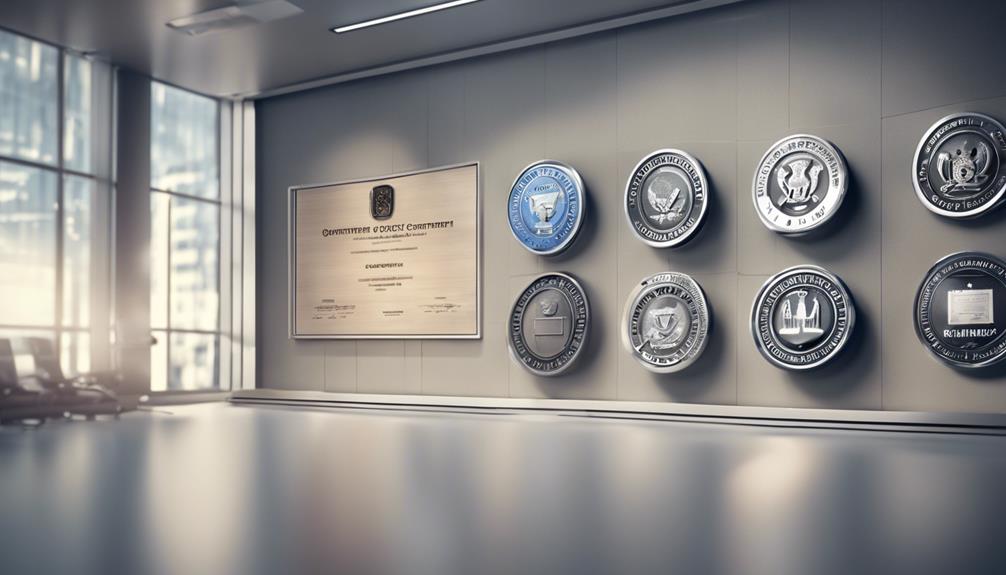
Almost all reputable Bitcoin trading platforms adhere to some form of regulatory compliance, which is crucial for ensuring your investments are protected. When you're choosing a platform, it's vital to check that they're not only registered with the appropriate financial authorities but also follow strict financial standards and anti-money laundering (AML) protocols.
To start, look for clear information on the platform's website about their compliance with regulations. If they're based in the U.S., for example, they should be registered with the Financial Crimes Enforcement Network (FinCEN). They may also need to comply with international bodies, depending on their scope of operation.
Don't hesitate to ask for their licensing information, and verify this with the issuing authority. A platform's willingness to disclose this information transparently is a good sign of their legitimacy.
Additionally, check for any history of regulatory issues or sanctions, as this could be a red flag.
Understand the Fee Structure
Understanding the fee structure of a Bitcoin trading platform is crucial before you start trading. Each platform has its own set of fees, and not being aware of these can eat into your profits significantly.
Typically, you'll encounter transaction fees, which are charged per trade, and can vary whether you're a maker (creating a new order) or a taker (filling an existing order). Some platforms also charge withdrawal and deposit fees, which can depend on the method of payment you choose.
It's important to compare these fees across different platforms to find the most cost-effective option for your trading style and frequency. Be wary of platforms that offer low trading fees but compensate with high withdrawal fees.
Also, look out for any hidden fees in the fine print. These could be for account maintenance, inactivity, or even for certain trading strategies.
Assess the Quality of Customer Support
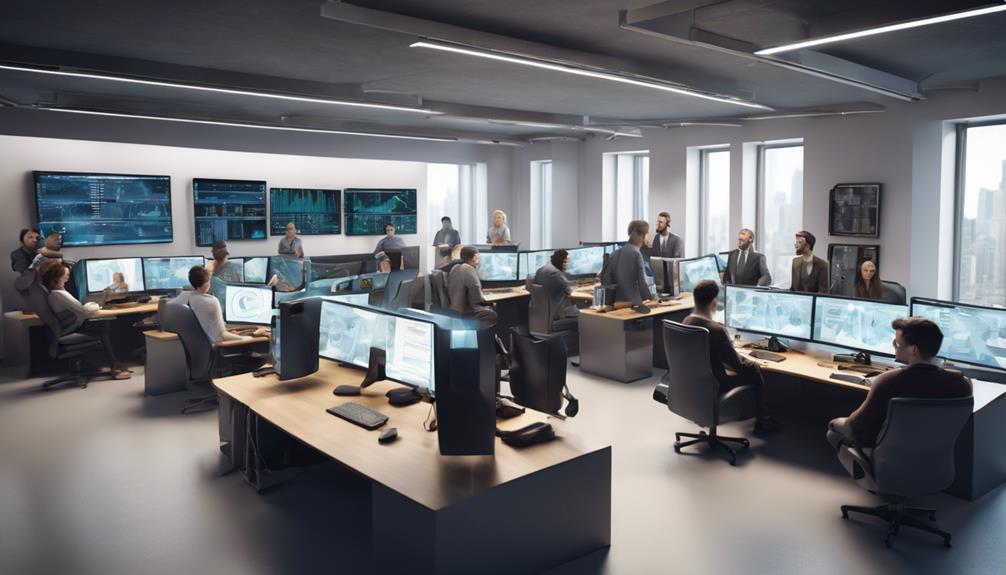
When you're evaluating Bitcoin trading platforms, don't overlook the quality of customer support. This often-overlooked aspect can make or break your trading experience, especially when you encounter issues or need urgent help.
Firstly, check if the platform provides multiple support channels. Can you reach them via email, live chat, or phone? More channels mean more ways to get help when you need it. It's also vital to test these channels to see how responsive they are. Send a query and note how quickly they respond. This will give you a real-time insight into what you might expect as a user.
Moreover, assess the availability of support. Is it 24/7, or are there specific hours? The crypto market never sleeps, and neither should the support of a top-notch trading platform.
Lastly, consider the professionalism and knowledgeability of the support team. They shouldn't only be quick to respond but also capable of resolving your queries effectively. Check online reviews or crypto forums to see what existing users say about their support experiences.
Monitor Platform's Security Updates
Keep tabs on a platform's security updates to ensure you're trading on a safe and updated system. It's crucial to stay informed about any changes or enhancements made to the security protocols of your chosen platform. This proactive approach can protect your investments from potential vulnerabilities and exploits that cybercriminals may target.
When you're checking for updates, don't just skim through them. Understand what each update entails and how it affects your security and trading experience. If a platform introduces two-factor authentication (2FA) or updates its encryption methods, these are positive signs that they're maintaining high security standards.
Also, consider how frequently a platform releases security updates. A platform that regularly updates its security features is more likely to stay ahead of emerging threats. Conversely, infrequent updates might be a red flag signaling a lack of commitment to security.
Lastly, see if the platform has a transparent way of informing users about these updates. Reliable platforms will notify you through emails, dashboard notifications, or official blog posts. Staying updated through these channels ensures that you won't miss any critical changes that could impact your trading activities. Take these steps seriously to safeguard your digital assets effectively.
Recognize the Importance of User Privacy
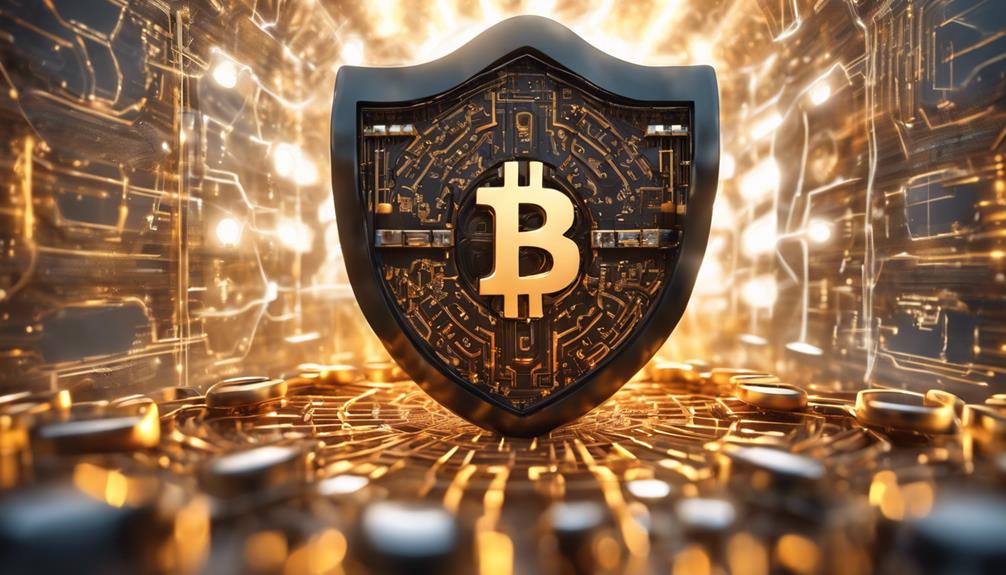
While monitoring platform security updates is a key step in protecting your investments, don't overlook the importance of user privacy. As a Bitcoin trader, it's crucial to select platforms that prioritize your confidentiality. This means they should employ robust encryption methods to safeguard your personal data and transaction details from unauthorized access.
Look for platforms that offer two-factor authentication (2FA), which adds an extra layer of security by requiring not only a password and username but also something that only you possess.
It's also wise to check the platform's privacy policies to understand how your data is used and shared. Ensure they don't sell your information to third parties, which could put you at risk of identity theft and fraud.
You should also be wary of platforms that require excessive personal information beyond what's legally necessary. Less information provided means less exposure to potential data breaches.
Always use unique, strong passwords for different platforms, and consider using a dedicated email address solely for your trading activities. This strategy limits the consequences of possible data leaks and helps maintain your overall digital privacy. Remember, protecting your privacy is just as vital as safeguarding your investments.
Research Historical Security Breaches
Before you commit to any Bitcoin trading platform, it's crucial to investigate its history of security breaches. You'll want to know if the platform has ever been hacked, what was stolen, and how the situation was handled. This information can provide you with valuable insights into the platform's security protocols and resilience against attacks.
Start by checking out news articles, cybersecurity reports, and forum discussions about the platform. You're looking for any signs of past vulnerabilities that were exploited. Remember, a platform that's experienced breaches isn't necessarily insecure now; what's more important is how they responded to the incident. Did they transparently address the issue? Were affected users compensated?
Also, review any updates or upgrades made to their security systems following a breach. A platform that learns from past mistakes and strengthens its defenses is a positive sign.
You can even reach out directly to their support or check their FAQs to see what security measures they currently employ.
Conclusion
To ensure your Bitcoin trading is secure, always opt for platforms with robust encryption and cold storage. Don't overlook the necessity of two-factor authentication and prioritize user privacy. Regularly check for security updates and regulatory compliance to stay protected. Remember, platforms with positive user reviews and a clean history of security breaches are typically safer. By following these tips, you'll significantly reduce your risk and trade more confidently. Stay vigilant and keep your investments secure.



